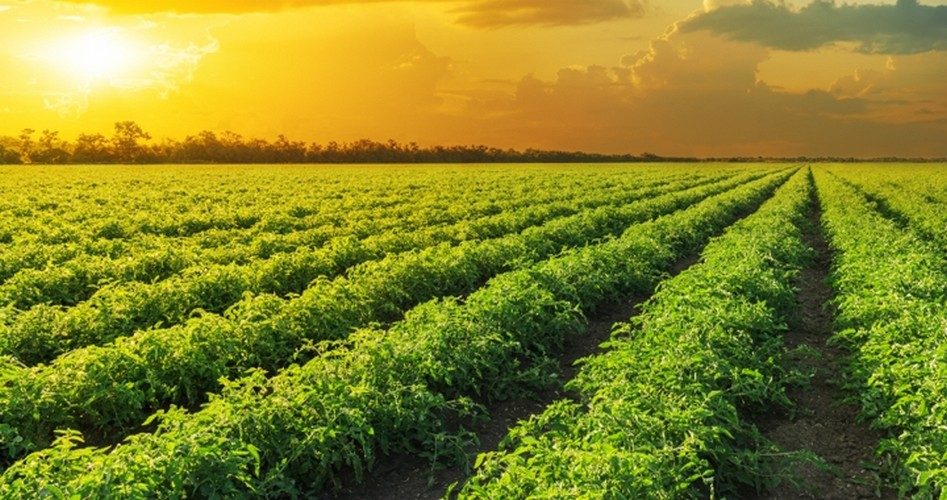
A new study from the London School of Hygiene and Tropical Medicine (LSHTM) is making the claim that, if changes are not made to stem the tide of so-called global warming, future crop yields of non-staple vegetables and legumes will be significantly lower due to the effects of climate change.
Of course, this conclusion should be viewed with a healthy dose of skepticism by anyone who understands that plants cannot survive, let alone flourish, without taking in carbon dioxide, and releasing oxygen, through a process called photosynthesis. Shouldn’t an increase in atmospheric CO2 benefit plant life? Indeed, studies have shown this to be the case.
The LSHTM study is reportedly the first to thoroughly scrutinize how some of the projected climate changes such as higher temperature and (the study claims!) reduced availability of water will impact the growth of crops such as tomatoes and leafy vegetables. “Our study shows that environmental changes such as increased temperature and water scarcity may pose a real threat to global agricultural production, with likely further impacts on food security and population health,” said Dr. Pauline Scheelbeek, an epidemiologist at LSHTM and a co-author of the study.
The study assumes that water will be scarcer and saltier in the future despite the predicted fresh water (glaciers) melting and expected sea level rise, which would theoretically make the world warmer and wetter. It also predicts increased ozone (O3) pollution even though it’s been reported that one of the “benefits” of so-called climate change is a reduction in O3 pollution.
Despite research (and common sense) that show increased carbon dioxide levels actually increase growth in plants, the study concludes the opposite and encourages improving agricultural practices to mitigate the problem. From the study: “Our results stress the importance of prioritizing agricultural developments, to minimize potential reductions in vegetable and legume yields and associated negative health effects.”
The researchers estimate that the average yield of vegetables could decline by as much as 35 percent and legumes by as much as 9 percent due to the predicted water scarcity and increased O3 concentrations. They also estimate in warmer regions such as Southern Europe, and certain regions of Africa and Asia, the warmer temperatures might reduce vegetable growth by as much as 31 percent.
The politically motivated study was funded by the globalist organization the Wellcome Trust, an NGO headquartered in Great Britain, as part of their Our Planet, Our Health program. The head of that program, Dr. Howie Frumkin, concludes, “Environmental changes, including more chaotic weather patterns and a warmer climate, threaten our ability to feed the world’s people.”
Well, of course they do, Howie. The study you funded to come up with that exact conclusion “proves” it after all.
The LSHTM study comes on the heels of another study, published by Science Advances, which suggests that staple crops such as corn and rice will become victim to the scourge of climate change as well. That study concludes that, due to rising CO2 levels, staple crops, particularly rice, will lose nutritional value due to increased atmospheric carbon dioxide.
The study, led by Dr. Michelle Tigchelaar of the University of Washington, uses global production data to inform models on how various climate scenarios might affect the yield and the quality of staple crops such as corn, rice, and wheat.
More models. What could go wrong?
Unsurprisingly, the models suggest that if global temperature increase can be kept at or under the 2C level that the Paris Climate Accord suggests, production will remain stable, with some risk of yield variation but, more or less, “business as usual.”
The larger problems come as the global temperature rises 4C or more. At that point, the models suggest huge problems with yields of up to 40 percent less than normal, even in the United States. This would cause high prices, scarcity and, of course, famine in the worst-case scenarios.
But don’t plants do better in a warmer, moister environment such as the ones most climate models predict as a result of global warming? Isn’t that the reason we have hot-houses for tomatoes and other vegetables? Don’t agronomists sometimes pump in extra CO2 to stimulate plant growth?
These studies are obviously politically motivated and calculated to answer such questions. Whenever a climate realist says, “don’t plants need warmth and CO2? Won’t a warmer world and more CO2 be good for food production?” the climate alarmists can trot out studies such as these to claim otherwise. This is science used as a political talking point, pure and simple.
And science itself is the victim of this push to blame climate change on human activity. Real science cannot be practiced when a political agenda and the funding apparatus demands that studies come to predetermined conclusions. Along with most other things in life, the quality of science goes down in direct proportion with the amount of politics involved in it.
Photo: mycola/iStock/Getty Images Plus



